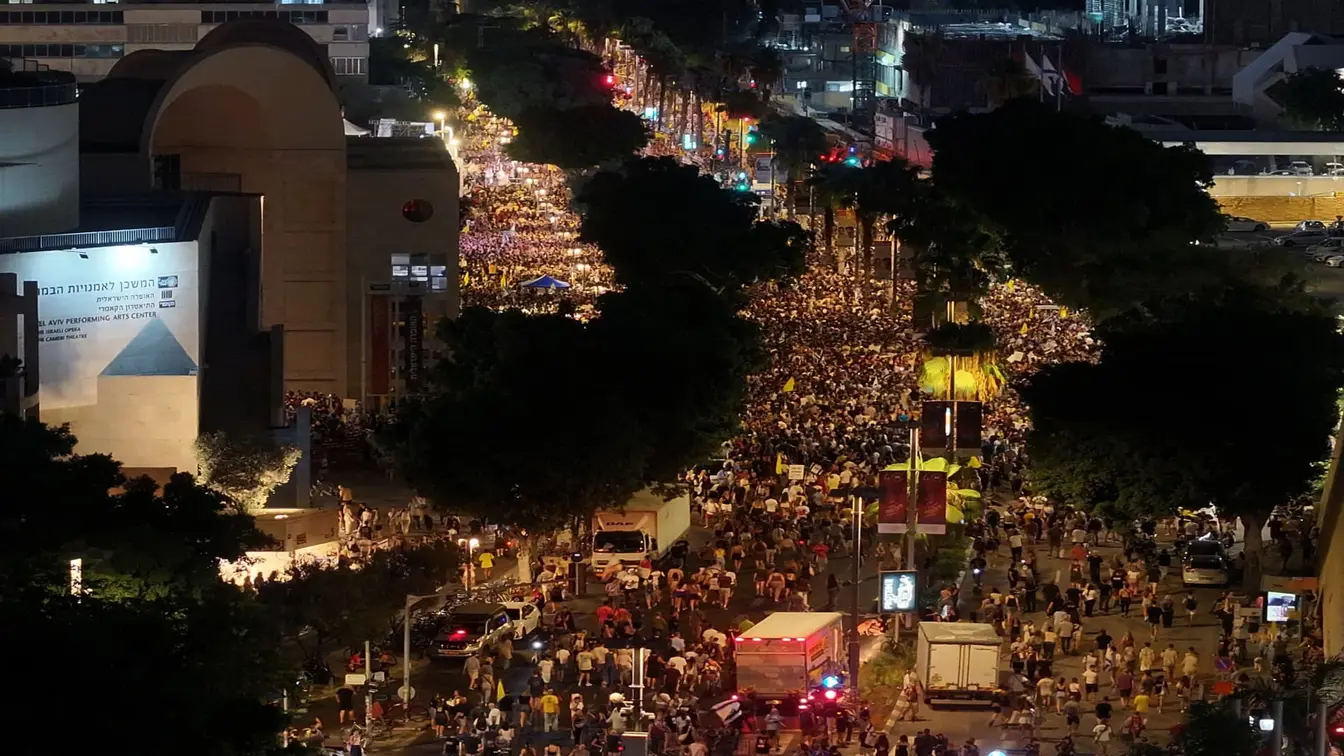T4K3.news
Israel protests demand hostage deal
Mass demonstrations and a nationwide strike push for the release of 50 hostages held in Gaza across Israel.
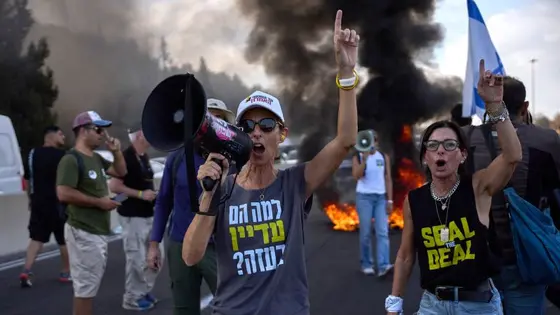
Mass demonstrations and a nationwide strike across Israel push for the release of 50 hostages held in Gaza.
Israel faces mass protests demanding hostage deal
Thousands of Israelis gathered in major cities on Sunday, blocking roads and closing private businesses in what organizers described as one of the largest demonstrations since the Gaza conflict began. Family members of hostages led the action, calling for a comprehensive deal that would end the war in exchange for the hostages’ return.
Histadrut did not join the strike, but many technology firms, law firms, universities and private employers showed support as workers took time off or reduced activity. Organizers announced an emergency press conference in Tel Aviv to demand a concrete proposal. At Hostages Square, families urged the government to act now.
The government has warned that expanding the war in Gaza could threaten the 50 remaining hostages. Talks in Doha stalled after the United States and Israel pulled teams, with both sides accusing the other of not negotiating in good faith. President Isaac Herzog voiced support for the families, while Prime Minister Benjamin Netanyahu argued that pressuring for a ceasefire could delay hostage releases. Activists plan to maintain pressure with Waypoint 50 at the Gaza border.
Key Takeaways
"All of the people of Israel are anxious, concerned, and want the hostages to come home."
Herzog said at Hostages Square in Tel Aviv.
"It’s time to end the horrific nightmare the country has been living in for 22 months."
Statement by Vicky Cohen, a hostage family representative.
"Today we stop everything to save the lives of 50 hostages and soldiers."
Anat Engrest spoke during the press event.
"A cynical political maneuver on the backs of the hostages."
Remarks by Itamar Ben Gvir about the protest.
The scale of the protests signals a shift in public diplomacy, with families of the missing driving a crisis narrative that challenges a government framing the conflict in security terms. Voters appear more willing to push for a ceasefire in exchange for hostage releases, even as security considerations remain central to policy. The risk is that street pressure could push political leaders toward hardline positions or complicate delicate negotiations.
The event also lays bare tensions inside Israeli society between civilian advocacy and the security-first approach often promoted by the government. Labor groups wide across sectors supported the action, while the main labor union Histadrut stayed on the sidelines, underscoring fault lines within the domestic economy. International mediators watch closely as domestic demonstrations intersect with stalled talks and strategic choices about Gaza.
Highlights
- It's time to end the horrific nightmare this country has lived in for 22 months
- All of Israel wants the hostages to come home
- We stop everything to save the lives of 50 hostages
- A cynical political maneuver on the backs of the hostages
Political tensions and public reaction risk
The protests highlight political divisions and could influence government strategy and security policy. The scale of demonstrations and the border encampment could raise sensitive questions about legality, public order, and the path to negotiations.
The next steps will test how much street pressure can move a government still weighing security risks and international pressure.
Enjoyed this? Let your friends know!
Related News
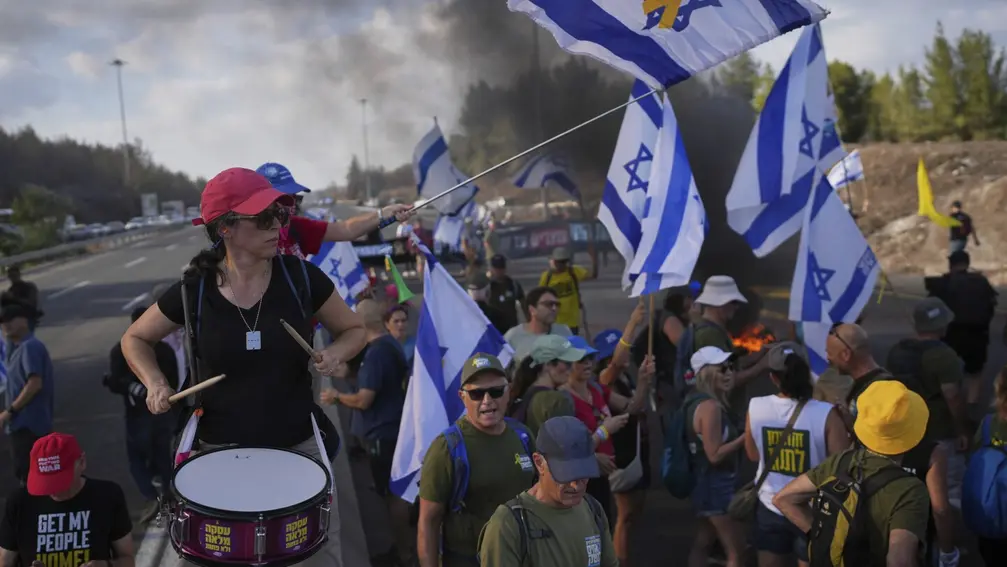
Israel protests escalate into nationwide strike
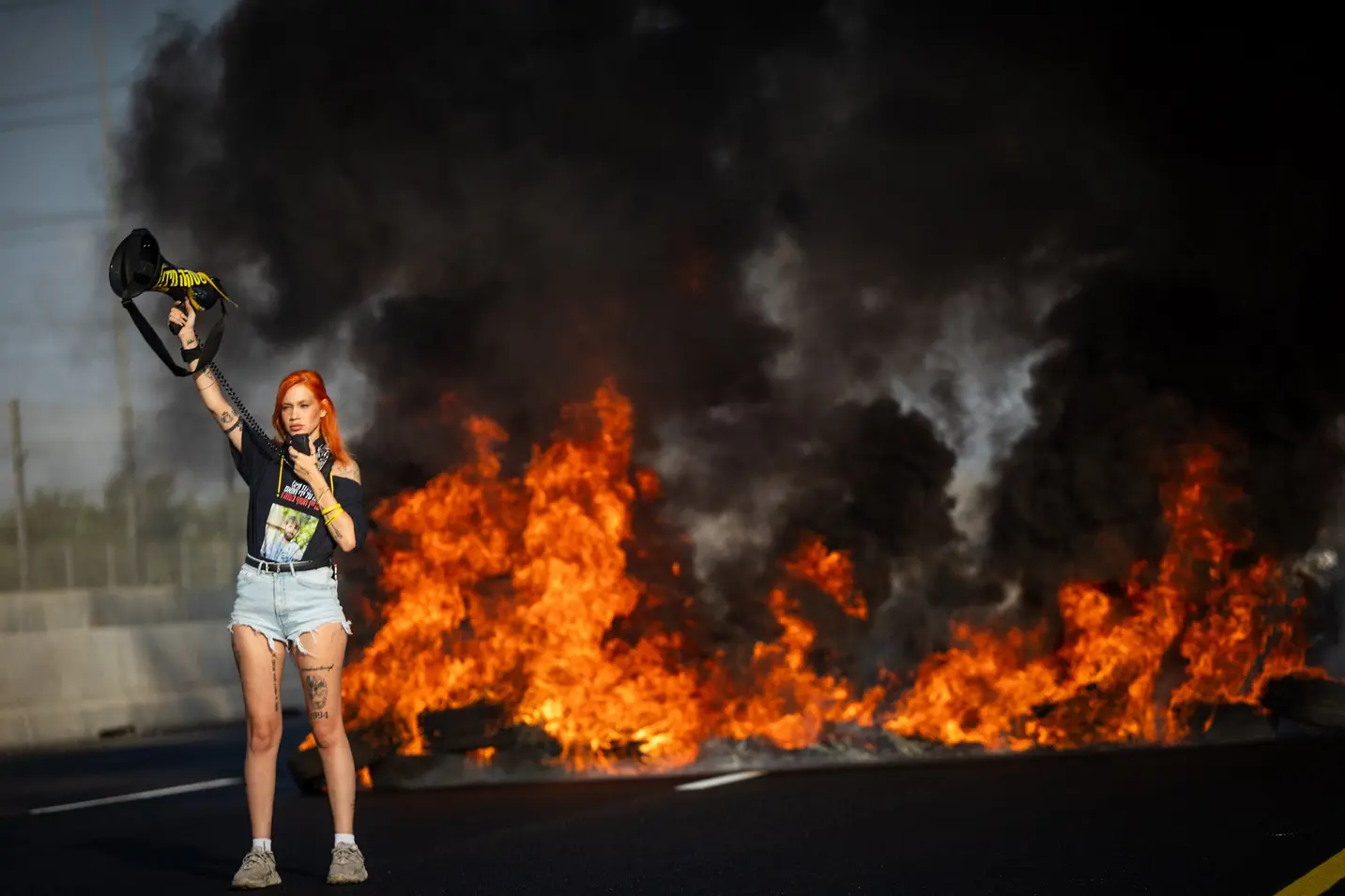
Protests across Israel press for full hostage release
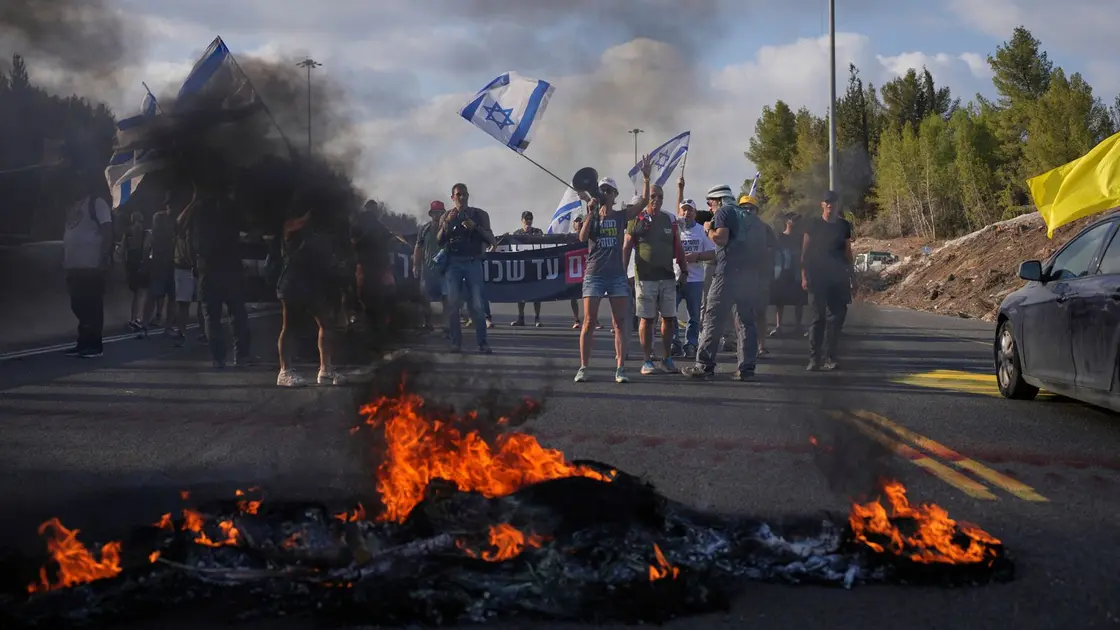
Protests demand ceasefire and hostage release
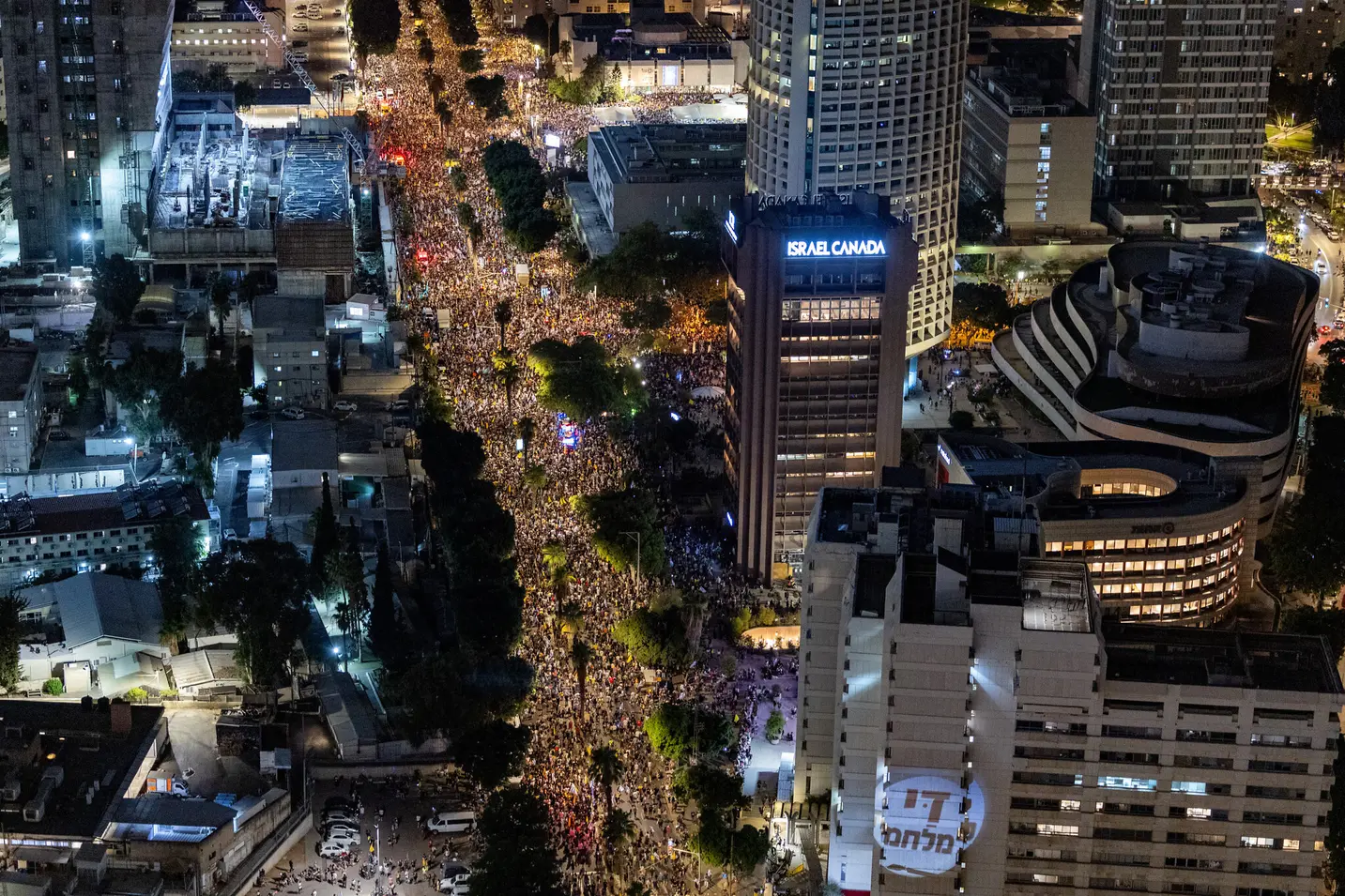
Tel Aviv rallies call for end to war and hostage release
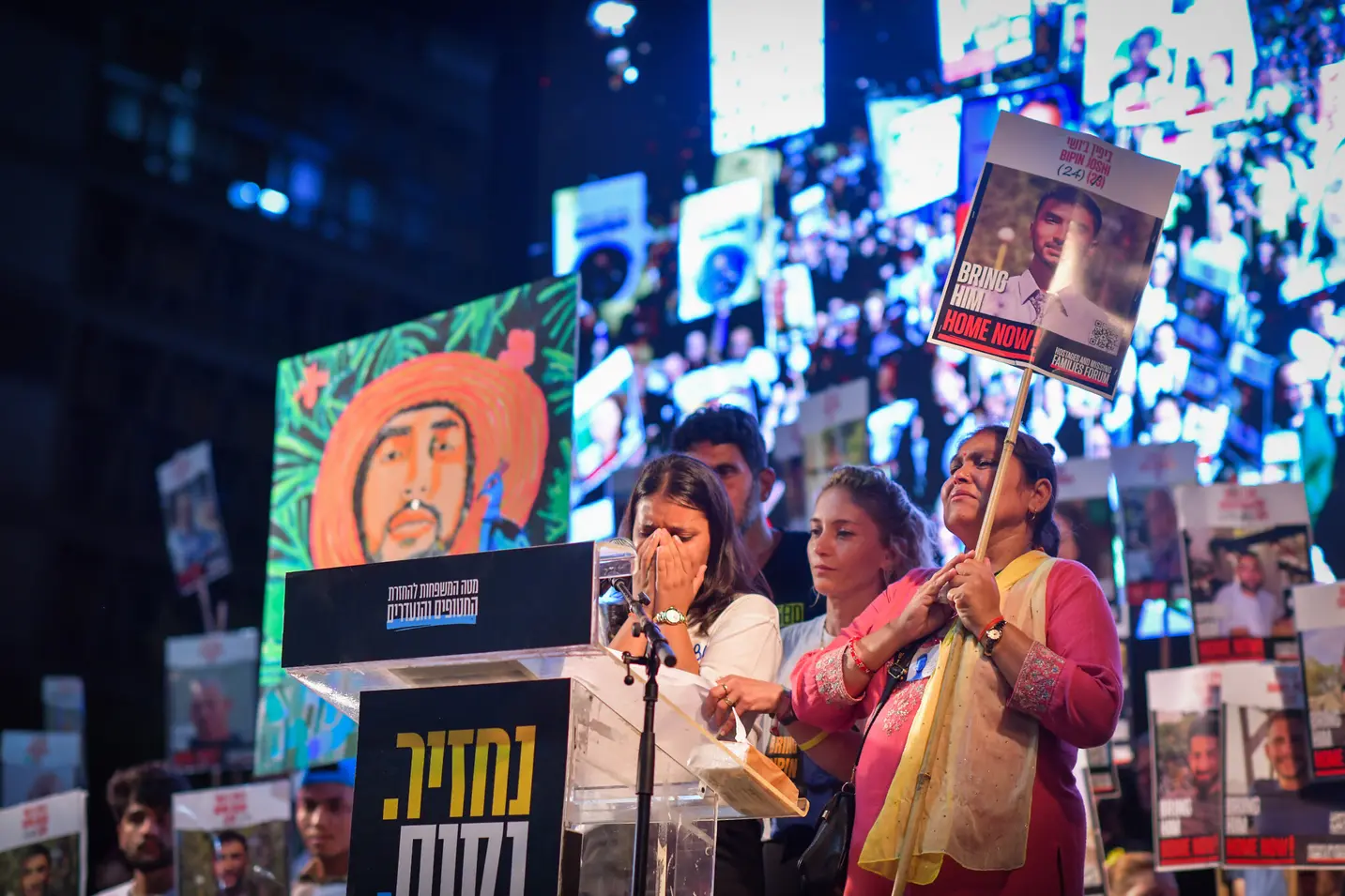
Ceasefire pressure rises

Protests demand ceasefire as Gaza war crowd grows

Protests rise as Netanyahu faces pressure over hostages

Tel Aviv crowd pushes for hostage deal
